
Muju Ski Resort: A Winter Wonderland in South Korea
Nestled in the picturesque mountains of South Korea, Muju Ski Resort is a dream destination for snow enthusiasts and adventurers alike. The resort is part of the Deogyusan National Park, offering stunning natural beauty coupled with top-notch skiing facilities. With its varied slopes, Muju caters to both beginners and seasoned skiers, ensuring an exhilarating experience for all skill levels. Muju Ski Resort is not just about skiing; it offers a range of activities to keep every visitor entertained. From snowboarding and sledding to exploring scenic hiking trails, there's something for everyone. The resort also boasts a charming village with cozy cafes, restaurants, and shops, allowing visitors to enjoy local cuisine and culture. One of the highlights of Muju Ski Resort is its night skiing. The well-lit slopes provide a magical experience under the stars, making it a unique attraction. Additionally, the resort's location makes it accessible from major cities like Seoul and Busan, making it a convenient getaway for both domestic and international travelers.
Local tips in Muju Ski Resort
- Book accommodations in advance, especially during peak seasons, to secure the best options.
- Rent ski equipment on-site to avoid the hassle of carrying gear.
- Try the local specialty, Jeonju Bibimbap, available at many resort restaurants.
- Take advantage of the night skiing for a unique and memorable experience.
- Check the weather forecast and dress in layers to stay comfortable in varying conditions.
Muju Ski Resort: A Winter Wonderland in South Korea
Nestled in the picturesque mountains of South Korea, Muju Ski Resort is a dream destination for snow enthusiasts and adventurers alike. The resort is part of the Deogyusan National Park, offering stunning natural beauty coupled with top-notch skiing facilities. With its varied slopes, Muju caters to both beginners and seasoned skiers, ensuring an exhilarating experience for all skill levels. Muju Ski Resort is not just about skiing; it offers a range of activities to keep every visitor entertained. From snowboarding and sledding to exploring scenic hiking trails, there's something for everyone. The resort also boasts a charming village with cozy cafes, restaurants, and shops, allowing visitors to enjoy local cuisine and culture. One of the highlights of Muju Ski Resort is its night skiing. The well-lit slopes provide a magical experience under the stars, making it a unique attraction. Additionally, the resort's location makes it accessible from major cities like Seoul and Busan, making it a convenient getaway for both domestic and international travelers.
When is the best time to go to Muju Ski Resort?
Iconic landmarks you can’t miss
Deogyusan Resort
Discover the splendor of Deogyusan Resort, a top winter destination in South Korea, offering thrilling skiing, breathtaking views, and year-round outdoor adventures.

Deogyusan
Discover the breathtaking beauty of Deogyusan in Muju-gun, South Korea, where outdoor adventures await year-round in a stunning natural landscape.
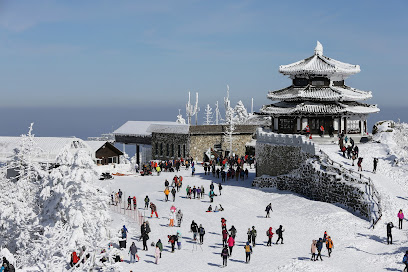
Deogyusan National Park
Discover the breathtaking beauty of Deogyusan National Park, a haven for hiking, skiing, and wildlife in South Korea's stunning landscapes.
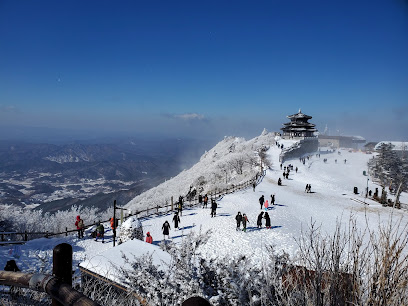
Muju ski resort
Experience the thrill of winter sports at Muju Ski Resort, where stunning landscapes and diverse slopes await all adventure seekers.

Unmissable attractions to see
Jeonju Zoo
Experience the vibrant wildlife and beautiful landscapes at Jeonju Zoo, a must-visit family-friendly attraction in South Korea.
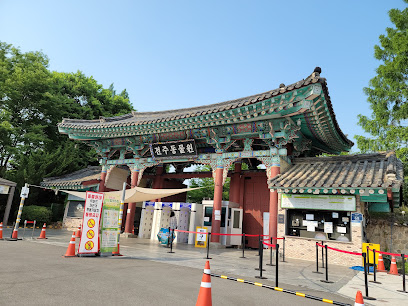
Deokjin Park
Explore the tranquil beauty of Deokjin Park in Jeonju, a perfect blend of nature and traditional Korean architecture for a memorable experience.
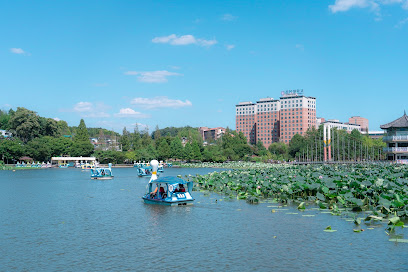
Donghaksa
Experience tranquility and rich history at Donghaksa, a picturesque temple offering a glimpse into Korea's cultural heritage amid beautiful landscapes.
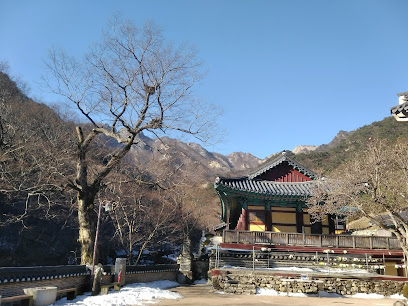
Muju Deogyusan Resort Seolcheon Tour Gondola Boarding Point
Discover breathtaking views at Muju Deogyusan Resort Gondola, a must-visit destination for nature enthusiasts in South Korea's stunning mountain region.
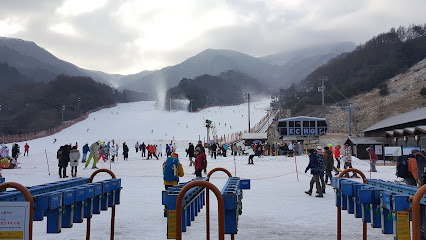
Daedong Sky Park
Discover the serene beauty of Daedong Sky Park in Daejeon, a perfect blend of nature and tranquility for every traveler.
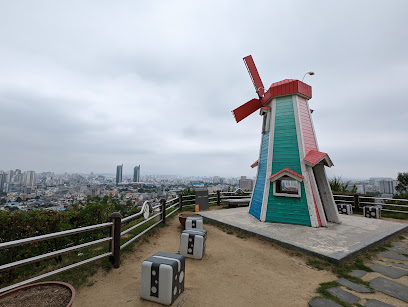
Songnisan National Park
Explore Songnisan National Park, a breathtaking natural wonder in South Korea with stunning landscapes, historic temples, and diverse wildlife.
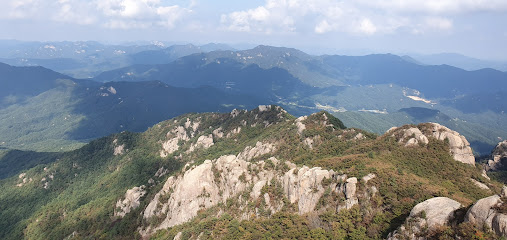
Taekwondowon
Explore Taekwondowon in Muju-gun, a premier sports complex celebrating the art and culture of Taekwondo amidst stunning natural landscapes.
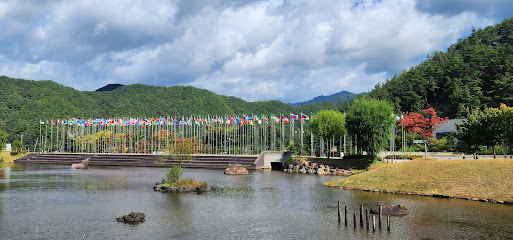
Uam Historical Park
Explore Uam Historical Park in Daejeon, where nature meets Korea's ancient history in a serene and picturesque setting.
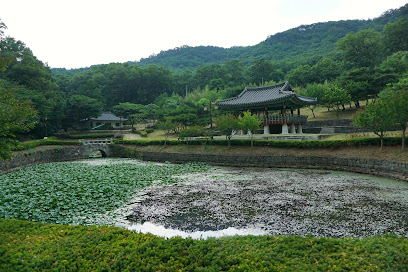
반디랜드
Explore Bandiland in Muju-gun: A captivating blend of nature, adventure, and Korean culture awaits every traveler.
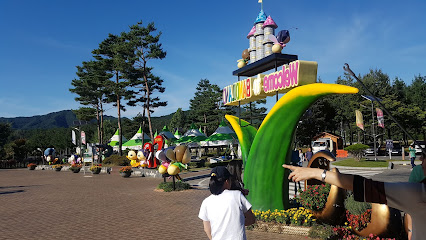
Biseulsan Natural Recreation Forest
Experience the tranquil beauty of Biseulsan Natural Recreation Forest, a top destination for nature lovers and outdoor enthusiasts in Daegu, South Korea.
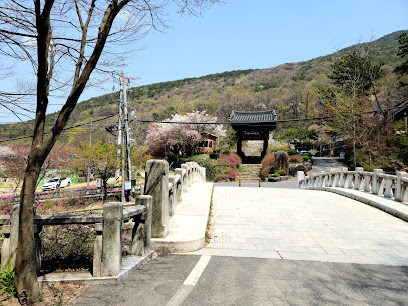
Okgye Falls
Discover the breathtaking beauty of Okgye Falls, a serene natural wonder in Chungcheongbuk-do, perfect for relaxation and stunning views.
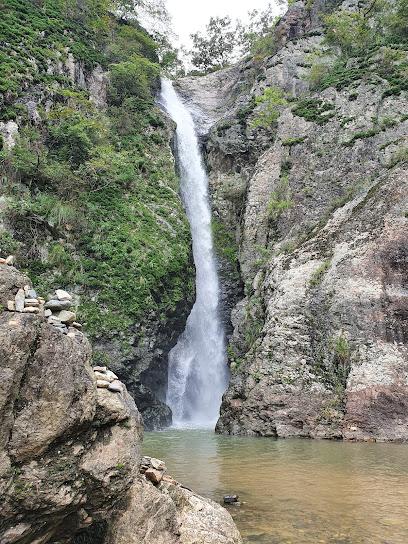
Muju Gucheondong Valley
Experience the breathtaking natural landscapes and outdoor adventures at Muju Gucheondong Valley, a serene escape in South Korea's Jeollabuk-do.
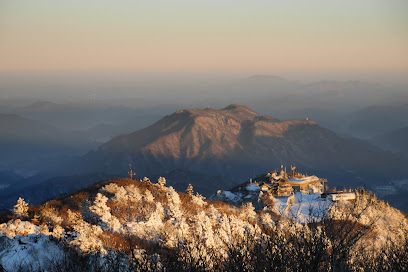
Anguksa
Discover the serene beauty and spiritual heritage of Anguksa, a tranquil Buddhist temple in Jeollabuk-do, South Korea.
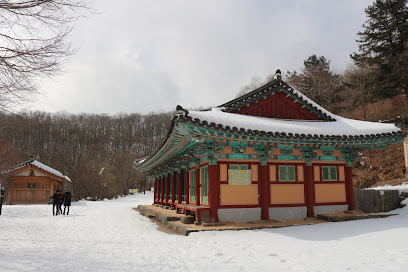
Deogyusan
Discover the enchanting beauty of Deogyusan Mountain, a top destination for breathtaking views, diverse wildlife, and unforgettable adventures in nature.
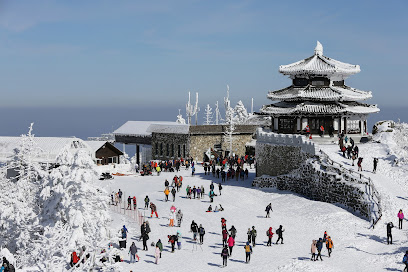
Maisan Provincial Park
Explore the breathtaking landscapes and unique rock formations at Maisan Provincial Park, a serene escape for nature lovers in Jeollabuk-do, South Korea.
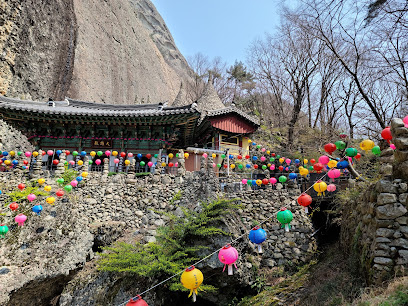
Essential places to dine
Deogyusan Resort
Experience thrilling winter sports and breathtaking scenery at Deogyusan Resort in Jeollabuk-do, South Korea's premier destination for adventure seekers.

Muju Deogyusan Resort Dusol-dong
Experience luxury amidst nature at Muju Deogyusan Resort – your gateway to adventure in Jeollabuk-do.
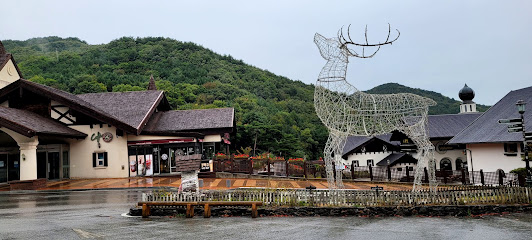
Log House
Discover tranquility at Log House in Jeollabuk-do—your perfect holiday home with delicious Western cuisine awaits!
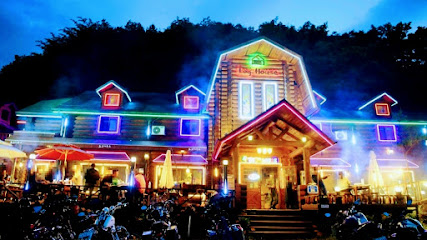
Muju Deogyusan Resort - Family Hotel
Experience breathtaking nature and family-friendly comfort at Muju Deogyusan Resort in Jeollabuk-do.
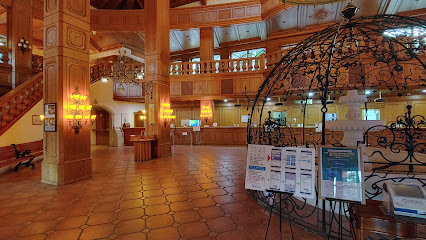
Muju Deogyu Mountain's Story Pension
Experience serenity at Muju Deogyu Mountain's Story Pension – your perfect getaway surrounded by nature's beauty.
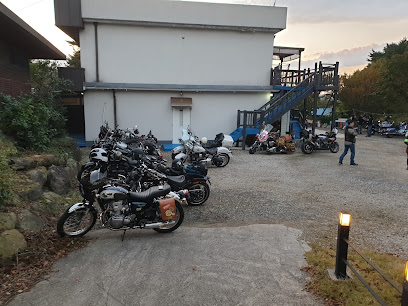
Muju ski resort
Experience unforgettable winter adventures at Muju Ski Resort with thrilling slopes and family-friendly activities in South Korea's stunning landscape.

Muju Clouds Pension
Discover tranquility at Muju Clouds Pension - your gateway to nature's beauty in Jeollabuk-do.
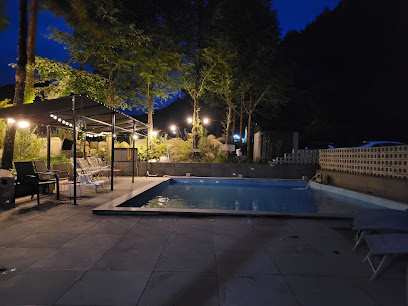
Local Phrases about Muju Ski Resort
-
- Hello안녕하세요
[annyeonghaseyo] - Goodbye안녕히 가세요
[annyeonghi gaseyo] - Yes네
[ne] - No아니요
[aniyo] - Please/You're welcome부탁합니다
[butakhamnida] - Thank you감사합니다
[gamsahamnida] - Excuse me/Sorry죄송합니다
[joesonghamnida] - How are you?어떻게 지내세요?
[eotteoke jinaeseyo?] - Fine. And you?잘 지내고요. 당신은?
[jal jinaegoyo. dangsineun?] - Do you speak English?영어 할 줄 아세요?
[yeongeo hal jul aseyo?] - I don't understand이해하지 못해요
[ihaehaji mothaeyo]
- Hello안녕하세요
-
- I'd like to see the menu, please메뉴를 보여주세요
[menyureul boyeojuseyo] - I don't eat meat고기를 먹지 않아요
[gogireul meokji anayo] - Cheers!건배!
[geonbae!] - I would like to pay, please결제하고 싶어요
[gyeoljehago sipeoyo]
- I'd like to see the menu, please메뉴를 보여주세요
-
- Help!도와주세요!
[dowajuseyo!] - Go away!가세요!
[gaseyo!] - Call the Police!경찰을 불러주세요!
[gyeongchareul bulleojuseyo!] - Call a doctor!의사를 불러주세요!
[uisareul bulleojuseyo!] - I'm lost길을 잃었어요
[gireul ilheosseoyo] - I'm ill아파요
[apayo]
- Help!도와주세요!
-
- I'd like to buy...구입하고 싶어요
[guibhago sipeoyo] - I'm just looking구경만 하고 있어요
[gugyeongman hago isseoyo] - How much is it?얼마에요?
[eolmaeyo?] - That's too expensive너무 비싸요
[neomu bissayo] - Can you lower the price?가격을 깎을 수 있나요?
[gageogeul kkakeul su innayo?]
- I'd like to buy...구입하고 싶어요
-
- What time is it?몇 시에요?
[myeot sieyo?] - It's one o'clock한 시에요
[han sieyo] - Half past (10)십 시 반
[sip si ban] - Morning아침
[achim] - Afternoon오후
[ohu] - Evening저녁
[jeonyeok] - Yesterday어제
[eoje] - Today오늘
[oneul] - Tomorrow내일
[naeil] - 1일
[il] - 2이
[i] - 3삼
[sam] - 4사
[sa] - 5오
[o] - 6육
[yuk] - 7칠
[chil] - 8팔
[pal] - 9구
[gu] - 10십
[sip]
- What time is it?몇 시에요?
-
- Where's a/the...?어디에...가 있어요?
[eodie...ga isseoyo?] - What's the address?주소가 무엇인가요?
[jusoga mueosingayo?] - Can you show me (on the map)?지도로 보여주세요
[jidoro boyeojuseyo] - When's the next (bus)?다음 버스는 언제 와요?
[daeum beoseuneun eonje wayo?] - A ticket (to ....)표 하나 주세요
[pyo hana juseyo]
- Where's a/the...?어디에...가 있어요?
History of Muju Ski Resort
-
Muju Ski Resort, located in the scenic Deogyusan National Park, was established in 1990. This period saw South Korea investing heavily in its tourism infrastructure, aiming to attract both domestic and international tourists. The resort's creation was a part of a broader national strategy to enhance winter sports facilities and to promote the natural beauty of the region.
-
Deogyusan National Park, where Muju Ski Resort is located, has a rich history that dates back to ancient times. The park is named after Mount Deogyu, which has been a spiritual site for centuries. It is home to several historical temples, including Anguksa Temple, built during the Silla Dynasty (57 BC – 935 AD). The area has long been a place of pilgrimage and natural beauty, making it a culturally significant destination.
-
Muju Ski Resort gained international recognition when it hosted the 1997 Winter Universiade. This bi-annual multi-sport event is organized for university athletes worldwide. The event put Muju on the map as a world-class skiing destination and showcased South Korea's growing capabilities in hosting international sporting events.
-
Adjacent to Muju Ski Resort is the Taekwondo Park, which opened in 2014. It serves as a global center for the martial art of Taekwondo, which originated in Korea. The park includes a museum, training facilities, and an arena for demonstrations. The integration of Taekwondo Park with Muju Ski Resort underscores the area's commitment to celebrating and preserving Korean culture and history.
-
In recent years, Muju Ski Resort has focused on sustainability and eco-friendly tourism. The resort has implemented measures to minimize its environmental impact, such as using renewable energy sources, promoting conservation efforts in Deogyusan National Park, and encouraging eco-friendly practices among visitors. This commitment reflects a broader trend in South Korea towards sustainable tourism development.
Muju Ski Resort Essentials
-
Muju Ski Resort is located in the Deogyusan National Park in South Korea. The nearest major city is Daejeon, which is approximately 120 kilometers away. The easiest way to reach the resort is by taking a bus from Seoul's Express Bus Terminal or Dong Seoul Bus Terminal to Muju. The journey typically takes about 3 hours. Alternatively, you can take a train to Daejeon and then transfer to a local bus or taxi to reach the resort. For international travelers, the nearest international airport is Incheon International Airport, from where you can take a bus or train to Seoul and follow the aforementioned routes.
-
Once at Muju Ski Resort, most attractions and accommodations are easily accessible on foot. The resort also offers shuttle services to various parts of the resort area. For exploring nearby areas, local buses and taxis are available. Renting a car is another convenient option, especially if you plan to explore beyond the resort. Keep in mind that parking spaces can be limited during peak seasons.
-
The official currency in South Korea is the South Korean Won (KRW). Credit cards are widely accepted at the resort, including in hotels, restaurants, and shops. However, it is advisable to carry some cash for smaller establishments and local markets. ATMs are available within the resort area, but ensure your card is compatible with Korean banking networks. Currency exchange services are available at the airport and major banks in nearby cities.
-
Muju Ski Resort is generally a safe destination for tourists. However, it is always wise to take standard precautions. Avoid leaving your belongings unattended and be cautious in crowded areas. The resort has a good security presence, but it is still advisable to stay vigilant. There are no specific high-crime areas targeting tourists within the resort, but it is best to avoid isolated areas late at night.
-
In case of emergency, dial 119 for fire and medical emergencies, and 112 for police assistance. The resort has a medical center equipped to handle minor injuries and illnesses. For more serious medical issues, the nearest hospital is in Muju town. It is highly recommended to have travel insurance that covers medical emergencies. Familiarize yourself with the location of emergency exits and first aid stations within the resort.
-
Fashion: Do wear appropriate winter clothing, including layers and waterproof gear. Don't wear revealing clothing in public areas. Religion: Do respect local customs and traditions. Be mindful when visiting temples and religious sites. Public Transport: Do offer your seat to elderly passengers and avoid speaking loudly. Don’t eat or drink on public transport. Greetings: Do greet people with a slight bow or a handshake. Don’t be overly familiar with strangers. Eating & Drinking: Do try local Korean cuisine and be open to new flavors. Don’t refuse food or drink offerings, as it can be considered impolite.
-
To experience Muju Ski Resort like a local, try visiting during weekdays to avoid the weekend crowds. Explore the local eateries for authentic Korean dishes such as bibimbap and bulgogi. Participate in local cultural events and festivals, such as the Muju Firefly Festival if your visit coincides with it. Take the time to visit the nearby Bandi Land, an educational theme park focused on fireflies and insects, which is a favorite among locals. Engage with the friendly staff and locals, who are often more than willing to share insider tips and recommendations.
Nearby Cities to Muju Ski Resort
-
Things To Do in Daejeon
-
Things To Do in Daegu
-
Things To Do in Suncheon
-
Things To Do in Gwangju
-
Things To Do in Andong
-
Things To Do in Gyeongju
-
Things To Do in Ulsan
-
Things To Do in Busan
-
Things To Do in Pohang
-
Things To Do in Suwon
-
Things To Do in Mokpo
-
Things To Do in Seoul
-
Things To Do in Incheon
-
Things To Do in Chuncheon
-
Things To Do in Jeju City







